Research has found that patients with a traumatic brain injury (TBI) are three times more likely to experience depression than those who have not had one. For every ten people who do not have a brain injury, approximately one person will have depression. For every ten people who do, around three people will.
Both the patient and their caregivers must educate themselves to recognize the signs and lower the chance of anxiety. At NeuLife, we help prepare patients and families for a successful return to everyday life by guiding them through the whole process of brain injury rehabilitation.
Unfortunately, researchers have not determined specific factors that cause depression after brain injuries or when it usually starts. Some people experience depression right after their injury, while others develop it a year or more later.
Regardless of when your brain injury occurred, it is essential to tell your doctor about any depressive symptoms. The doctors and health care professionals at NeuLife will then ask you a series of questions or fill out a questionnaire or form to aid in diagnosing you.
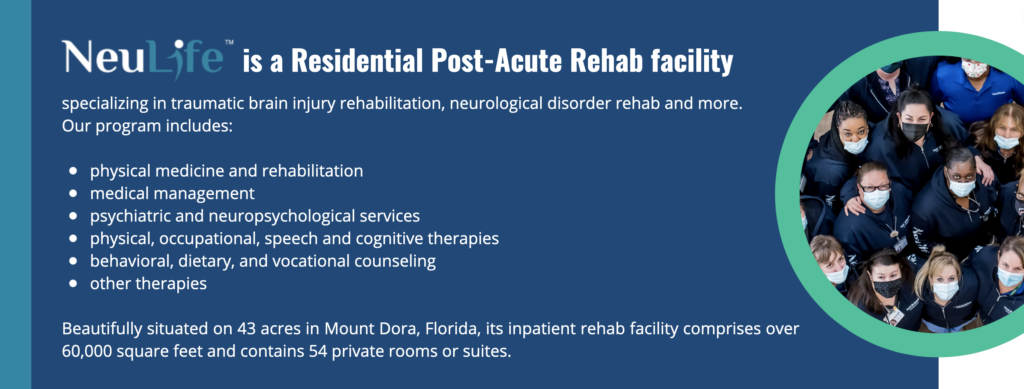
These are some symptoms of early depression. Usually the symptoms last at least a week or more and interfere with everyday life:
Often, people suffering from depression do not notice their symptoms, leaving it up to caregivers and close friends or family to be attentive to mood or behavioral changes.
Remember some amount of sadness after a brain injury is normal. But when it lasts for a prolonged period of time and the symptoms do not seem to improve, then it may be depression. Fortunately, post-acute rehabilitation offers effective treatment options specializing in TBI and depression.
Depression is usually treated two ways:
The most important component in treating depression at a neuro-rehabilitation centre is having the support of loved ones. If the patient is experiencing depression, they may feel lonely, worthless, or like they do not belong.
If those close to the patient make an effort to show love and compassion, it can aid in healing. A simple way to accomplish this is by opening up lines of communication and including them in social activities when they occur.
There are a few factors that may contribute to depression if your loved one has had a TBI. For one, they may have experienced actual physical changes in the brain due to the injury. Sometimes there is damage to the part of the brain that is in charge of regulating emotions.
There are also lifestyle changes that a TBI impacts. The patient may experience job loss, disability, or loss of income. Any of these factors can contribute to depression.
Also, specific individuals may be more at risk of suffering from depression. There may be a hereditary component, personal history, substance abuse, or another risk factor involved. If these factors are present before the injury, the patient is more at risk for depression.
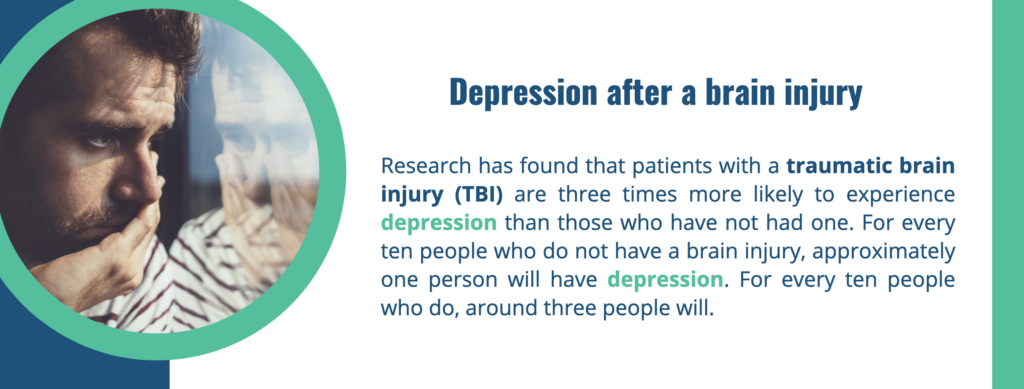
NeuLife is a Residential Post-Acute Rehab facility specializing in traumatic brain injury rehabilitation, neurological disorder rehab and more. Its program includes physical medicine and rehabilitation, medical management, psychiatric and neuropsychological services, physical, occupational, speech and cognitive therapies, behavioral, dietary, and vocational counseling, and more.
Beautifully situated on 43 acres in Mount Dora, Florida, its inpatient rehab facility comprises over 60,000 square feet and contains 54 private rooms or suites.
For more information about NeuLife Rehabilitation Services, please give us a call at 800.626.3876, or visit our website. You can also make a referral or schedule a tour!
The material contained on this site is for informational purposes only and DOES NOT CONSTITUTE THE PROVIDING OF MEDICAL ADVICE, and is not intended to be a substitute for independent professional medical judgment, advice, diagnosis, or treatment. Always seek the advice of your physician or other qualified healthcare providers with any questions or concerns you may have regarding your health.
If a loved one has recently had a brain injury, then you may have noticed how the injury has affected their mental health. Recent studies have shown that one out of five patients who have had a brain injury experience an impact on their mental health six months after their injury.
The brain injury can significantly impact how the patient can express and process their emotions. Mood swings, anxiety, depression, and changes in temperament are all seen among brain injury patients.
So how does a person with a brain injury heal emotionally from their injury? Time, patience, and rehab for brain injury can help patients improve and return to their pre-accident state.
This article will address the relation of brain injuries to mental health and how post-acute rehabilitation can heal a patient long term.
You might notice that a patient with a brain injury has a change of emotions that seem to swing quickly. They may go from happy to sad to angry, and the feelings may seem quite intense.
The mood swings are caused by actual damage to the part of the brain that processes emotions. Sometimes there is not even a trigger that causes the patient to experience one emotion then quickly another.
Often this leaves loved ones hurt or confused but understand that the patient cannot regulate their emotional behavior. The good news is that mood swings usually improve on their own within a few months of a brain injury.
In rehabilitation, patients learn skills to manage mood swings. Medications also can be prescribed that can help with emotions.
It can also be helpful for family members to seek therapy on their own to help deal with the stress of the changes in the patient. Through treatment, you can process your own emotions and learn coping skills to help with the stress of having a loved one with a brain injury.

It is not unusual for brain injury patients to experience outbursts of anger. The patient may yell, swear, throw things, or threaten harm.
The cause is also damage to the part of the brain that process emotions. There can also be outside stressors contributing to anger, such as job loss or financial insecurity.
Patients may also experience depression, changes in sleep, or have difficulty with attention. All of these factors can cause incredible frustration for the patient, increasing feelings of anger.
Family members can help by understanding the patient does not have complete control over their temperament. It’s best to try not to argue back with the patient and to try to remain calm. Setting healthy boundaries will also help all with managing outbursts.
Patients with a brain injury can feel anxious without really knowing why. Sometimes they may fear failure, criticism, feeling rushed, or even be experiencing pain.
Anxiety can sometimes lead to debilitating panic attacks. Traumatic situations or fear of them occurring keep the patient in a paralyzed mode with the inability to move forward. Because anxiety can be pretty complicated, it is always best managed by a physician or psychiatrist.
You can help your loved one by reducing outside stressors and by providing reassurance to the patient. Post-acute rehabilitation will help the patient develop healthy routines, start helpful medications, and offer counseling to help them learn control over their anxiety.
Everyone experiences sadness, especially after a serious injury, but if the feeling lasts for a long time or impacts activities of daily living, then the patient may have depression.
There are several symptoms to look for with depression, including:
The cause of the injury may be brain damage, life changes, environmental factors, or a combination. The physical changes that occur in the brain after brain injury, but the life changes that occur after a disability can also contribute to depression.
Rehab for brain injury helps the patient heal from depression. The patient may be prescribed medication, participate in therapy, learn new hobbies, exercise, and feed the body good nutrition, all of which help the patient heal. Just like with any treatment, the sooner the patient gets help, the better the outcome.
NeuLife Rehabilitation Center is one of the best TBI rehab centers in Florida. Our treatment team works with a range of traumatic brain injury diagnoses to ultimately return home to live a whole life. This is accomplished by addressing both the emotional and physical implications of the patient’s brain injury.
We help your loved one to get their life back. To learn more information about our services, do not hesitate to contact us today. Make a referral or give us a call at 800.626.3876.
The material contained on this site is for informational purposes only and DOES NOT CONSTITUTE THE PROVIDING OF MEDICAL ADVICE, and is not intended to be a substitute for independent professional medical judgment, advice, diagnosis, or treatment. Always seek the advice of your physician or other qualified healthcare providers with any questions or concerns you may have regarding your health.
Residential treatment of people with complex conditions or post-injury issues is often more successful than outpatient care. Being in a program 24 hours a day, 7 days a week, may seem daunting, but this environment also provides continuous support.
It is one of the main reasons why people who go through residential rehab in Florida have a better chance of getting to long-term recovery and staying healthy. There are many benefits of residential rehabilitation, for which we will cover in this article.
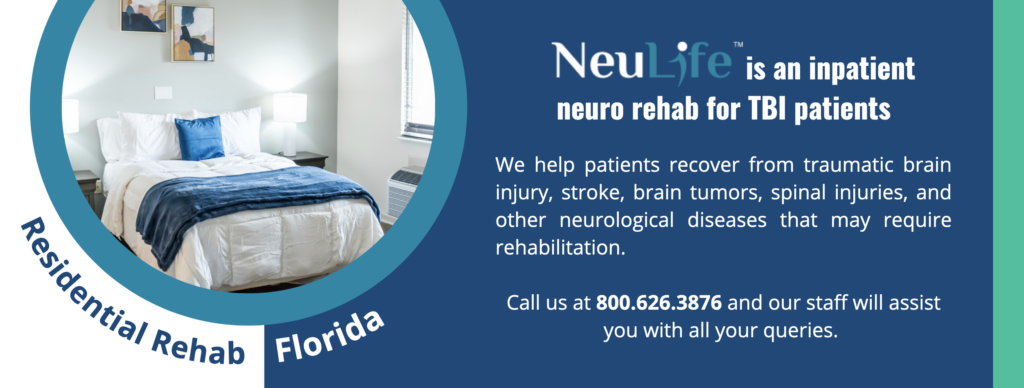
A regular, daily schedule may seem very restrictive at first sight. However, the structure and routine allow each person to focus on getting healthy instead of managing their time. It eliminates gaps of downtime and gives stability to the rougher moments of recovery. A planned schedule that involves recreational activities helps people re-develop their willpower and learn to keep commitments.
Residents can make use of the many site amenities. These include:
We can offer such amenities on our campus because we are the largest residential rehab in Florida. Our staff provides a delicate balance between activities and therapies that allows for rest and entertainment between intensive rehabilitation sessions.
Many people who have had severe injuries or have complex neurological conditions feel isolated, insecure, and misunderstood. They may also experience the guilt of putting a heavy burden on the shoulders of their nearest and dearest.
Therapies help address not only patients’ physical requirements, but also their emotional and spiritual needs. Our neuro rehab center offers the least restrictive environment possible, so patients retain both a sense of privacy and freedom. You can trust your loved one is being cared for, lessening the burden while all adjust to the diagnosis.
At NeuLife Rehab, everyone you meet during the day will understand the pain and suffering your condition causes. There is no need to justify or explain yourself. Fellow patients often share their own stories of struggle and success, and our professional staff serves as knowledgeable and compassionate guides. Whenever you’re at a challenging moment, someone will be there to help you through it.
Freed from work, school, friends, and family obligations, a person at a residential rehab facility can entirely focus on themselves. Residential treatments aim to achieve more than physical health. People address their past issues and develop new healthy habits and focus on their psychological well-being.
People with complicated conditions can start loving themselves again and creating higher self-esteem. The structure and the community provide an environment where patients have the opportunity to heal their body, mind, and spirit.
The ultimate goal of any residential rehab program is a successful and sustainable recovery. Consider residential rehab if you have not had success with outpatient treatment, have a poor support structure at home, or need structure, community, and focus on solving your issues.
There are several reasons behind the need for post-acute rehabilitation. The care plans are specially designed based on the diagnosis as well as every individual’s needs. The team structures therapies and medical care based on what may ensure the best outcome for the patient at our neurorehabilitation center.
Our clinical experts see patients who have suffered from:
All programs are designed so the patients can accomplish their goals in life and, over time, can make a healthy transition back into their community.

NeuLife is an inpatient neuro rehab for TBI patients in Florida. We help patients recover from traumatic brain injury, stroke, brain tumors, spinal injuries, and other neurological diseases that may require rehabilitation.
Our facility successfully helps patients through structured programming, including speech, physical therapy, medical care, skills development, nutrition and exercise, and mental health therapies, including CBT.
Call us or schedule a tour, and our staff will assist you with all your queries. We want to make your return to everyday life comfortable and quick. You can also make a referral.
The material contained on this site is for informational purposes only and DOES NOT CONSTITUTE THE PROVIDING OF MEDICAL ADVICE, and is not intended to be a substitute for independent professional medical judgment, advice, diagnosis, or treatment. Always seek the advice of your physician or other qualified healthcare provider with any questions or concerns you may have regarding your health.
When we hear the word brain injury, we often think of impact events as the cause, such as a concussion. But there are several different types of traumatic brain injury, and not all originate from an accident or injury.
Rehab for brain injury depends on how the injury occurred, where exactly in the brain the injury is located, and the severity of the damage. Treatment plans will correspond to the different types of traumatic brain injury.
This article will look more in-depth at 5 common types of traumatic brain injuries (TBI) frequently treated at our neurorehabilitation center.
A penetrating brain injury is where an object pierces the skull. The object or fragments of matter such as hair or skin can then contact the brain. In effect, the force of the trauma may have a significant impact causing severe injury.
There may also be a skull fracture, such as what may occur with a fall, motor vehicle accident, sports injury, or a gunshot wound. Any external force causing a skull fracture which then traumatizes the brain falls into this category.
A concussion is a common TBI and considered a minor brain injury. It is caused by the shaking of the brain suddenly or a sudden movement. Whiplash during a motor vehicle accident or sporting injury is a common cause of a concussion.
Concussions are often diagnosed through symptoms as Physicians cannot see them on imaging scans such as MRIs. A concussion can cause serious symptoms such as:
A serious concern is if a second concussion occurs on top of the first concussion. This is known as Second Impact Syndrome.
A brain contusion is essentially a bruise but located on the brain. Just like a bruise on the body, there is the breaking and bleeding of blood vessels. The danger lies in the pressure that may build on the brain.
Contusions are most often caused by impact injuries such as motor vehicle accidents, falls, or sports injuries. Sometimes the contusion can occur on the opposite side of the injury, known as a coup and counter-coup injury.
Just like any injury, a contusion may be minor or severe. Symptoms of a contusion may be similar to those of a concussion, although you can see agitation or mood changes. In extreme cases, there may be brain swelling, loss of consciousness, and distress.
These are injuries that occur due to a lack of proper oxygen to the brain. They often occur with stroke, heart attacks, or serious trauma. Essentially the attacks cut off blood flow, thus the oxygen supply to the brain.
Without enough oxygen, the brain quickly- in a matter of minutes- will begin to deteriorate, either injury or death occurs.
Other causes of anoxic brain injury include drowning, carbon monoxide poisoning, or suffocation.
A hypoxic injury occurs when the brain receives oxygen but not enough after an event such as a TIA (mini-stroke), so damage occurs. Other causes may be near-drowning, survivable cardiac arrest, or exposure to harmful gases.
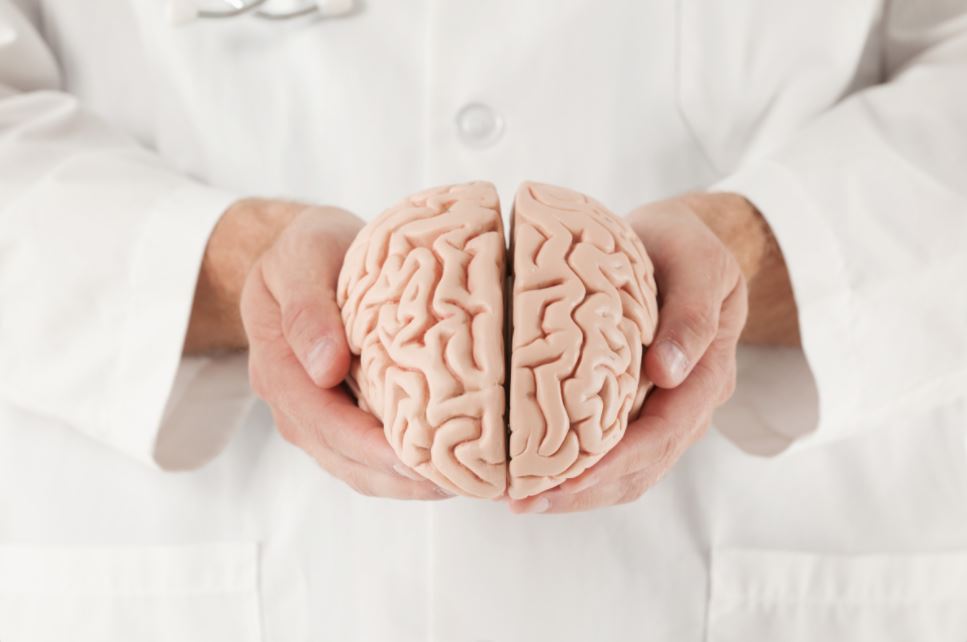
If you or a loved one require post-acute rehabilitation following a traumatic brain injury, consider Neu Life. We understand different brain injuries and can coordinate the appropriate care based on your loved one’s individual needs.
We help our patients get their life back’. If you would like more information about our services, do not hesitate to contact us today or simply visit our website neuliferehab.com.
Make a referral or give us a call at 800.626.3876.
The material contained on this site is for informational purposes only and DOES NOT CONSTITUTE THE PROVIDING OF
MEDICAL ADVICE, and is not intended to be a substitute for independent professional medical judgment, advice, diagnosis, or treatment. Always seek the advice of your physician or other qualified healthcare providers with any questions or concerns you may have regarding your health.
Brain damage or injury is a condition wherein the brain cells are destroyed or deteriorating. Brain injury is one of the main contributors to the huge number of disabilities and deaths in the United States every year. Brain damage happens as a result of a traumatic brain injury or acquired brain injury (non-traumatic). Depending on the severity, some patients take years to fully recover from it. In order to recover well from brain trauma, patients have to undergo different kinds of therapy from the best brain injury rehabilitation centers.
Brain injury occurs when there is damage to the brain that causes temporary or permanent cognitive, psychosocial, or physical impairment. It has two general types: traumatic and non-traumatic.
Data from the Centers for Disease Control and Prevention (CDC) shows that there were 2.87 million incidents of traumatic brain injury in 2014. A staggering 837,000 of these cases happened in children. These numbers continue to climb every year.
On the other hand, stroke, which is one of the most common non-traumatic injuries, affects 7.8 million people. This is 3.1% of the country’s adult population
A heart attack, also known as myocardial infarction, happens when a part of the heart is not receiving enough blood flow. The longer the heart is deprived of blood and oxygen, the greater the damage to the myocardium (heart muscle). Once damaged, the heart will be inefficient in pumping out blood.
One American suffers a heart attack every 40 seconds, according to the CDC. In fact, there are approximately 805,000 cases of heart attacks in the United States every year.
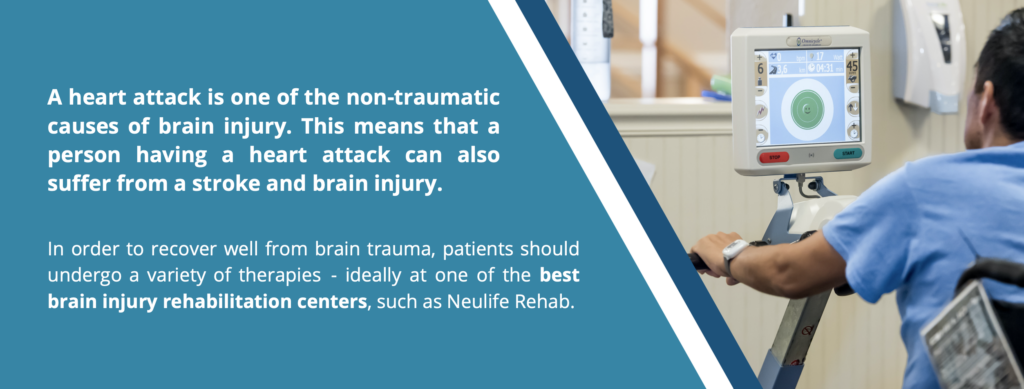
A heart attack is one of the non-traumatic causes of brain injury. This means that a person having a heart attack can also suffer from a stroke and brain injury.
According to Harvard Health, the risk factors for strokes and heart attacks are almost identical. These include obesity, high blood pressure, high cholesterol levels, cigarette smoking, diabetes, and a sedentary lifestyle.
As mentioned previously, a heart attack happens when there is a blockage in an artery that supplies blood to the myocardium. Because of this, the blood flow to the heart is cut off, resulting in tissue damage, tissue death, and altered electrical conduction. When these happen, the heart will no longer be efficient in pumping blood throughout the body.
Poor blood supply is the formula for tissue damage. This includes kidney damage and brain damage. Likewise, without the pumping movement of the heart, the blood in the blood vessels would no longer flow and will start to stagnate. In people with high cholesterol levels and diabetes, this can make the blood viscous, leading to the formation of blood clots. When these clots form, they block the artery that supplies blood to the brain tissues, which can result in an ischemic stroke.
Doctors measure the stroke risk of a heart attack patient using the CHADS-VASc assessment. If the patient belongs in risk categories 1 and 2, the patient will be given appropriate pharmacologic therapies to prevent a stroke.
To better understand the relationship between heart attacks and brain damage, let’s discuss the role of oxygen. Your brain needs an adequate oxygen sypply in order to function normally. Studies have shown that brain cells die when levels of oxygen in the brain significantly drops even just for several minutes. If the brain is deprived of oxygen longer than a few minutes, brain damage can occur. This injury is referred to cerebral hypoxia or anoxic brain injury.
As mentioned above, blood flow to and from the heart is cut off during a heart attack. Blood carries oxygen to the organs including the brain. So, during a heart attack, oxygen supply to the brain is also cut off. This is why around half of people who survive a heart attack often develop cognitive issues such as:
Heart attacks are very common. While there are ways to keep yourself healthy and reduce your risk for heart problems that may lead to a heart attack, there’s no guarantee that you won’t suffer from one. Patients who are unfortunate to experience a heart attack, but fortunate to survive it, can fully recover from the associated cognitive issues through timely and proper post acute brain injury rehabilitation, such as what we offer here at NeuLife Rehab.
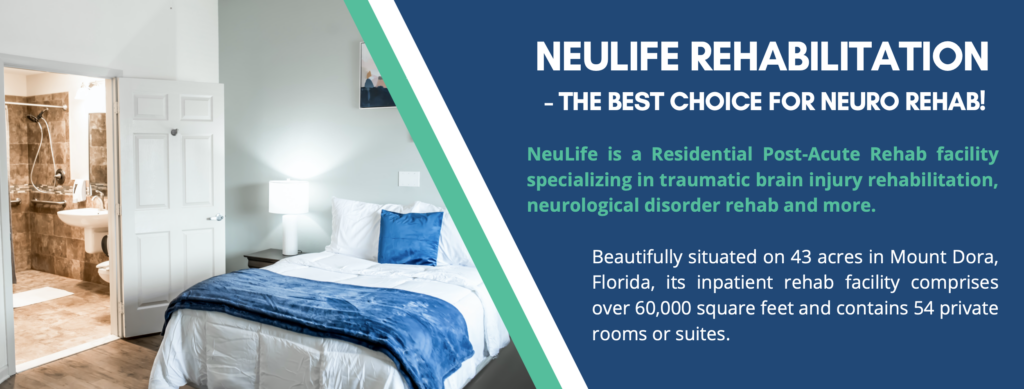
NeuLife is a Residential Post-Acute Rehab facility specializing in traumatic brain injury rehabilitation, neurological disorder rehab and more. As one of the best brain injury rehabilitation centers in Florida, its program includes physical medicine and rehabilitation medical management, psychiatric and neuropsychological services, physical, occupational, speech, and cognitive therapies, behavioral, dietary and vocational counseling, and more.
Beautifully situated on 43 acres in Mount Dora, Florida, its inpatient rehab facility comprises over 60,000 square feet and contains 54 private rooms or suites.
For more information about NeuLife Rehabilitation Services, please give us a call at 800.626.3876, or visit our website. You can also make a referral or schedule a tour!
The material contained on this site is for informational purposes only and DOES NOT CONSTITUTE THE PROVIDING OF MEDICAL ADVICE, and is not intended to be a substitute for independent professional medical judgment, advice, diagnosis, or treatment. Always seek the advice of your physician or other qualified healthcare providers with any questions or concerns you may have regarding your health.
It is normal for patients who have suffered from a traumatic brain injury (TBI) to have behavior problems. The behaviors can vary greatly from person to person. Some may seem exaggerated from their normal, while others are out of character.
But the good news is that your loved one can get the help they need from the right neuro rehabilitation center. Programs are individualized because, just like patients, every injury is different. Behavioral changes are unique and can be challenging to address.
Neurorehabilitation centers, such as NeuLife Rehab, address the cognitive and behavioral side to regain functional skills. Programs teach communication, impulse control and improve concentration skills.
Through rehabilitation, patients can integrate back home with their families and into the community as successfully as possible.
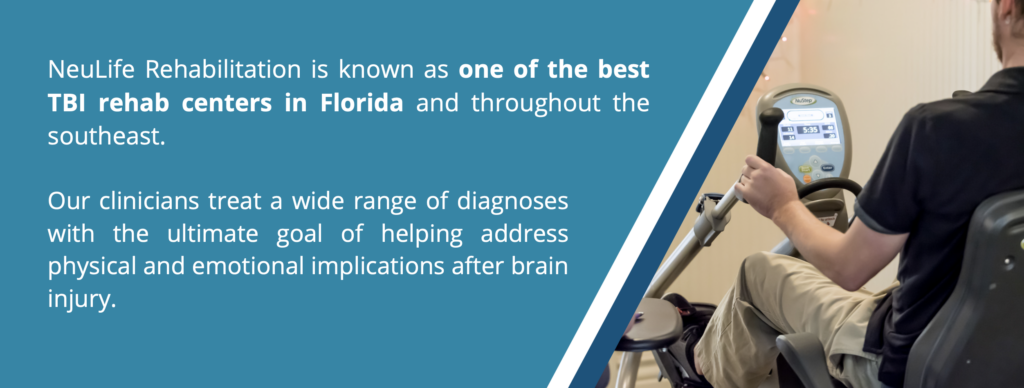
Following a brain injury, it can be difficult to see the personality changes that happen to those we love. It is best not to try to compare the patient to who they were before the injury. It is important to remember the changes in behavior are not the patient's fault, as it is a result of damaged brain cells.
Below, we will now provide an overview of common personality changes seen in patients at neuro-rehabilitation centers.
Patients can say or act out without thinking of the consequences after a brain injury. Family members may be embarrassed by the behavior.
It can also affect patients' outcomes as they may agree to complete a task that is unrealistic or outside of reason. Patients may also spend money without thinking of the result.
TBI patients experience both short and long term memory loss. Sometimes they experience amnesia for certain periods.
Often patients see the most difficulty with new learning. By repeating additional information or repeated activity engagement, patients can be more successful.
Patients also benefit from what is known as "real-time learning." Rather than reading knowledge, they are encouraged to engage in retention activities.
Therapies focus on keeping distractions to a minimum, completing one task at a time, and giving few commands.
Obsessive behaviors can be seen in TBI patients as a fixation on certain thoughts. Patients may do routine activities repeatedly or consistently seek reassurance.
Establishing structure can be helpful, so they move appropriately from one task to another. Appropriate reassurance with boundaries can help, so the patient does not become too agitated or anxious.
A patient with a brain injury may experience a lack of emotional response. Patients may not smile, laugh, express anger, or cry in instances where they may have before.
You can encourage emotions from your loved one, including laughing at humor or crying for grief. Again, try not to take it personally if their response is inappropriate because it is not because they do not care.
A TBI can cause extreme mood swings, known as emotional lability. It may show up as severe reactions to normal events. Recognize it is not intentional, and the patient does not have control over the responses.
It is recommended to remain calm and role model appropriate behavior. Reduce stress by not being overly critical, angry, or emotional. With time encourage appropriate reactions.
Irritability is a common personality change in TBI patients. Patients may be inpatient, intolerant of mistakes, or show irritation when anything disrupts their concentration.
Family members often report outbursts of verbal and sometimes physical aggression. In any situation, try to remain calm and ignore irritability.
If it is safe, acknowledge their frustration before it turns to anger. Try to show empathy and support if you can. Also, be consistent and avoid confrontation as much as possible.
You can sometimes help the patient gain control by asking if there is anything you can do. Try to remain patient and treat every outburst as a single event as the patient may not remember the incident.
TBI injuries may contribute to egoistic behavior. The patient may be self-centered or inconsiderate of friends and family's needs.
Though it is human nature to have an ego, it may be exaggerated in the brain injury patient. You may note they are either oblivious or unable to understand others' viewpoints.
Why does this happen? The injury impacts abstract thinking, so the patient may say thoughtless or hurtful words without understanding the impact.
You can help your loved ones by reminding them to be polite. Support the patient as they relearn how to be aware of others' feelings.
It is normal for TBI patients to have trouble concentrating. Simple reminders can help improve attention. It may also help break down tasks and information, so it is easy to understand.
Also, check-in with the patient's regularly regarding their mood. If they are tired, angry, or full of anxiety, it may not be the time to take on a difficult task. It also encourages patients to check in with themselves.
Through error correction, patients learn to modify concentration. Also, don't forget to praise in order to provide positive reinforcement.
Both increased and decreased sexual interest is seen in brain injury patients. Both hormonal and emotional influences are responsible.
It is best not to pressure a spouse for sexual activity if they show disinterest. Continue to show appropriate love, affection, and encouragement.
If the patient is showing increased sexual interest, it can be alarming. Patients may make gestures or comments in public, use inappropriate touch, or look for sexual attention.
It is very important to remind the patient about what behavior is appropriate. Be consistent with boundaries and remove yourself from the situation if they are disrespected.
Supportive care and even medications can sometimes be helpful for inappropriate sexual behavior.
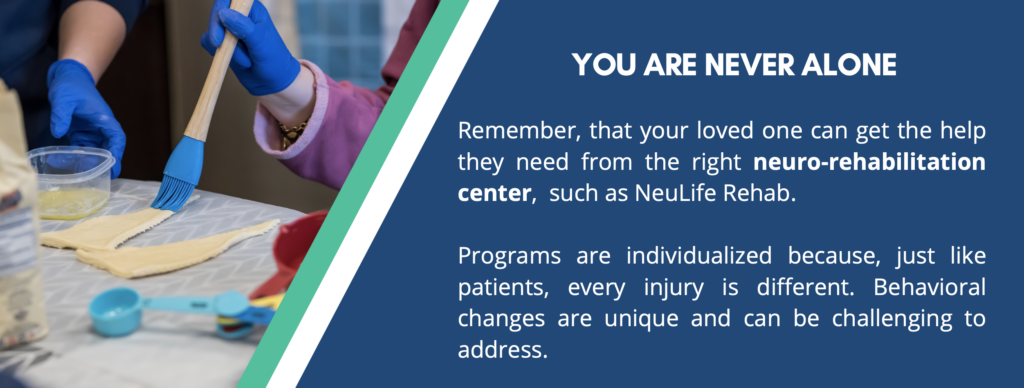
NeuLife Rehabilitation Center is known as one of the best and TBI rehab centers in Florida and throughout the southeast. Our clinicians treat a wide range of diagnoses with the ultimate goal of helping address physical and emotional implications after brain injury.
We help our patients' get their life back'. If you would like more information about our services, do not hesitate to contact us today. Make a referral or give us a call at 800.626.3876.
The material contained on this site is for informational purposes only and DOES NOT CONSTITUTE THE PROVIDING OF MEDICAL ADVICE, and is not intended to be a substitute for independent professional medical judgment, advice, diagnosis, or treatment. Always seek the advice of your physician or other qualified healthcare providers with any questions or concerns you may have regarding your health.
Mental health is affected when there is a brain injury. Treatments for the physical symptoms of traumatic brain injury (TBI) are critical, but so is the emotional component. Cognitive-behavioral therapy (CBT) is a popular treatment for these patients at the best brain injury rehabilitation centers.
CBT focuses on challenging and changing unhelpful thoughts and behaviors. As a result, patients learn emotional regulation and healthy coping skills. It is effective for TBI patients who have developed mental health issues due to injury or are struggling with underlying conditions that resurface.
How does CBT treat the side effects of brain injury? We will explain more in-depth as we explore CBT in this article.
Almost without exception, TBI patients experience an impact on emotional regulation and mental health. The following symptoms and conditions occur in TBI patients:
Sometimes patients have struggled in the past, but the brain injury intensifies symptoms. In other instances, the condition emerges after the injury.
Mental health can be frustrating for both the patient and the family. It may also affect other treatment areas such as TBI speech therapy activities and vocational training if not managed. With CBT, patients can address mental health, so they can also be successful throughout rehabilitation.
Cognitive-behavioral therapy is the most widely used treatment method for mental and emotional health. It is effective for treating TBI patients.
CBT focuses on getting patients to understand why they behave in the way they do. At the root, CBT helps patients uncover distorted or unhealthy thinking patterns. Patients learn to understand:
For example, a patient may believe they cannot complete occupational exercises. The patient can then feel anger. The anger leads to frustration when trying to learn occupational techniques taught, subsequently limiting potential. Thus the patient believes they are not successful at the activity.
CBT works to identify unhealthy patterns so the patient can change and find success. As long as there are no severe cognitive deficits due to injury, almost all patients benefit from CBT.
CBT trains TBI patients to change negative thoughts into positive thoughts. There are a few strategies used that are successful.
Through cognitive restructuring, patients learn to challenge their thoughts. Often we believe what we think is true and factual. With a TBI, this can become distorted. Therapists teach patients to question negative thinking to reframe them as positive and hopeful.
Behavioral activation or activity scheduling helps patients schedule positive activities during the day. This can include going on walks or playing a game. It also works to reduce harmful activities such as isolation.
Successive approximation enhances motivation. Patients work on simple tasks where they find success and then build to more challenging tasks.
Communication and emotional regulation can be challenging for TBI patients. Skills training teaches patients how to handle a variety of situations.
If you are looking for a post-acute rehabilitation center following TBI, then a CBT program component should be a factor in choosing the right facility.
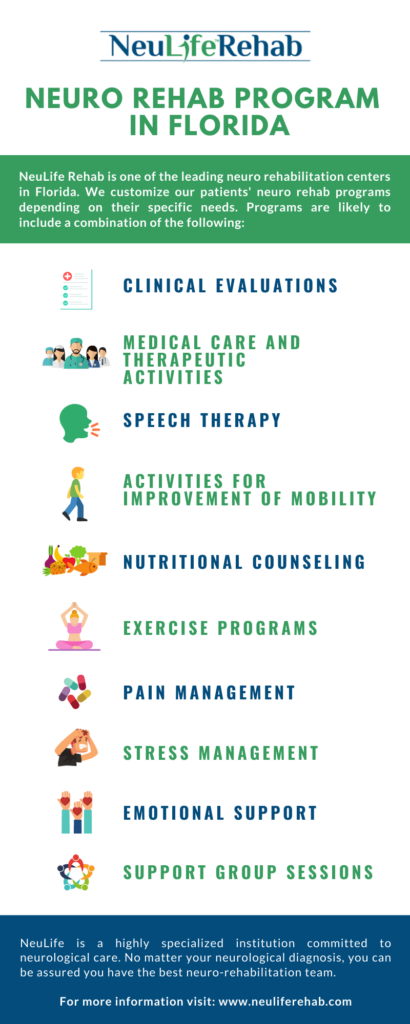
NeuLife is an inpatient neuro rehab for TBI patients in Florida. We help patients recover from traumatic brain injury, stroke, brain tumors, spinal injuries, and other neurological diseases that may require rehabilitation.
Our facility successfully helps patients through structured programming, including speech, physical therapy, medical care, skills development, nutrition and exercise, and mental health therapies, including CBT.
Contact us at 800.626.3876 to get your questions answered or make a referral.
If a loved one has had a brain injury, you may have heard the term ‘intracranial pressure’. It is not uncommon after a brain injury or medical condition caused by increased pressure in the skull.
Intracranial pressure can start as a headache but is a condition that can be fatal. Other serious complications include stroke, seizures, and neurological damage. However, it is treatable, and patients can have successful outcomes.
Post-acute rehabilitation facilities are medical treatment centers aimed at healing and returning patients to the community. Before participation in therapies, patients must wait until intracranial pressure is normalized. Education on the condition is essential in order to understand how your loved one's treatment plan is developed.
Many factors contribute to the cause of intracranial pressure. Often in patients who seek care at our neuro rehabilitation center, the root cause is a stroke.
Other causes of intracranial pressure include:
Often patients are monitored and treated for intracranial pressure in the ICU. There are three tools that medical units use to measure intracranial pressure in patients.
Healthcare providers can effectively manage intracranial pressure in many ICU settings. The goal is to reduce the cerebrospinal fluid (CSF) in the space around the skull. Providers often use medications such as Diamox, which can slowly reduce the amount of CSF produced, reducing pressure on the brain.
The positioning of the patient is used to encourage quick blood return to the heart. It can be helpful to reduce pressure in the skull gradually.
Steroids and fluids are also used to reduce swelling and help fluid return into the bloodstream where it can be eliminated. Sometimes surgical means are necessary to insert a shunt, which can help drain the fluid or remove underlying contributing factors such as a tumor. Crainectomies can also be an option for severe intracranial pressure where a part of the skull is removed so the brain can swell under careful monitoring.
ICUs and emergency departments are equipped to manage intracranial pressure. Once the condition improves and the patient is stable, they will often need further assistance from brain injury residential facilities to recover.

NeuLife Rehabilitation is a rehabilitation center specializing in rehabilitating patients with a wide range of brain injuries. Our brain injury residential facilities employ professionals who are the best in their fields and specialized in neurological injuries.
There is a reason we are leaders in post-acute rehabilitation as we customize our programs to the patient's individual needs. Call us at 800 626 3876 to discuss recovery options or make a referral. You can also schedule a tour of our facility.
The material contained on this site is for informational purposes only and DOES NOT CONSTITUTE THE PROVIDING OF MEDICAL ADVICE, and is not intended to be a substitute for independent professional medical judgment, advice, diagnosis, or treatment. Always seek the advice of your physician or other qualified healthcare providers with any questions or concerns you may have regarding your health.
We always want what is best for those we love. When there is a medical decision to make, it can be hard to make the right choice in the heat of the moment.
When a loved one suffers a brain injury, you may find yourself having to decide on where they may seek rehabilitation. Time may be a barrier, so it is important to understand what is important to look for in a brain rehabilitation center.
The best brain rehabilitation centers foster an environment where patients can heal yet prepare to transition home. Certain components may be beneficial to achieve desired outcomes.
The right brain rehabilitation center should offer multiple forms of therapy to ensure recovery. The best rehabilitation centers offer (but not limited to):
Look for a center that has an experienced team that utilizes the latest technologies in their field. The goal is to reduce limitations for the patient, maximize independence, and offer advancement to return to a rewarding life.

The best brain injury rehabilitation centers will customize the program to the needs of the patient. There are other important components aside from valuable medical care and therapies that may put the facility above others.
Additional programs such as nutritional counseling, ADL skill classes, stress management, support groups, and exercise programs can help patients heal effectively. The best facilities offer this help to patients and quality clinical evaluations, medication management, and effective therapeutic modalities.
The goal should always be to optimize the patient's health by improving strength, movement, balance, mental health, and other feelings of wellbeing. Programs that offer a holistic approach help maximize functioning and independence.
Sometimes considering amenities can be a factor in choosing the right post-acute rehabilitation. Though amenities never replace quality medical care, they can offer patients additional comfort and entertainment important for healing.
Some of the best brain injury rehabilitation centers offer the following for their patients to add to their overall wellbeing:
Additionally, patients should regularly have access to staff. The team should include doctors, occupational therapists, physical therapists, counselors, dieticians, case managers, nurses, and support staff available as needed to assist the patient in excelling through their stay.
Neulife Rehabilitation is one of the largest brain injury rehabilitation centers located in Florida. We offer comprehensive, quality medical care, superior therapy modalities, and amenities to honor the patient's wellbeing. Our care is individualized to the needs of every patient.
At our neurological rehabilitation center, we specialize in rehabilitating a wide range of injuries and have the experience you can trust. We encourage you to reach out to learn more about our facility and programs.
If you have any questions, we are here for you! Call us or make a referral through our convenient online form. We look forward to being a part of your recovery!
The material contained on this site is for informational purposes only and DOES NOT CONSTITUTE THE PROVIDING OF MEDICAL ADVICE, and is not intended to be a substitute for independent professional medical judgment, advice, diagnosis, or treatment. Always seek the advice of your physician or other qualified healthcare providers with any questions or concerns you may have regarding your health.
When a loved one has a brain injury, it comes with a flood of emotions for the family member who takes on the new role of ‘caregiver’. It is normal to feel relief that the patient survived the cause of the injury. But it is also normal to simultaneously feel a sense of emotional trauma or anger with the subsequent change to their personal circumstances and lifestyle. After brain injury, caregivers often face a number of new financial, physical, and emotional implications.
Neurological rehab professionals understand the challenges caregivers face when there is a brain injury. Through education and collaboration, TBI rehab centers can be a wonderful source for families to best care for themselves and the patient.
Grief can come in many forms when there is a brain injury. Many caregivers experience loss and anxiety, which often lasts long after the injury has occurred.
Caregivers may worry about another brain injury event, injury if they leave their loved one alone, and wonder if things will ever return to "normal."
There may be grief that life is not the same as it was before. It is not unusual to experience anger of loss of freedom as time and energy must shift to care for their loved one.
It is important to understand there is hope, and as the patient moves along their recovery journey, life does improve.
Recovery is a process, and change will not happen overnight. The TBI survivor may need post-acute rehabilitation for a significant amount of time after the injury. As life adapts to this reality, it becomes easier to embrace.
The recovery process can be broken down into phases:
Despite caregivers’ best efforts, sometimes additional support may be necessary to better care for a TBI survivor. There are number of warning signals to look out for, as listed below.
Signs of distress include:
There is help available for caregivers, which may include:
The focus should be on education and interventions that are appropriate and adapt as the patient needs change. The caregiver must also be allowed to care for themselves to better handle expected and unexpected stressors.
It is not unusual for caregivers to experience anxiety, depression, and social isolation, sometimes more so than the TBI survivor. After inpatient neuro rehab, they become responsible for the patient's needs, often sacrificing their care.
The following are suggestions for self-care when you are a caregiver or a TBI survivor:
You do not have to care for a loved one alone. Even if the TBI survivor has graduated from post-acute rehabilitation, you may still utilize TBI rehab centers for support along your journey.
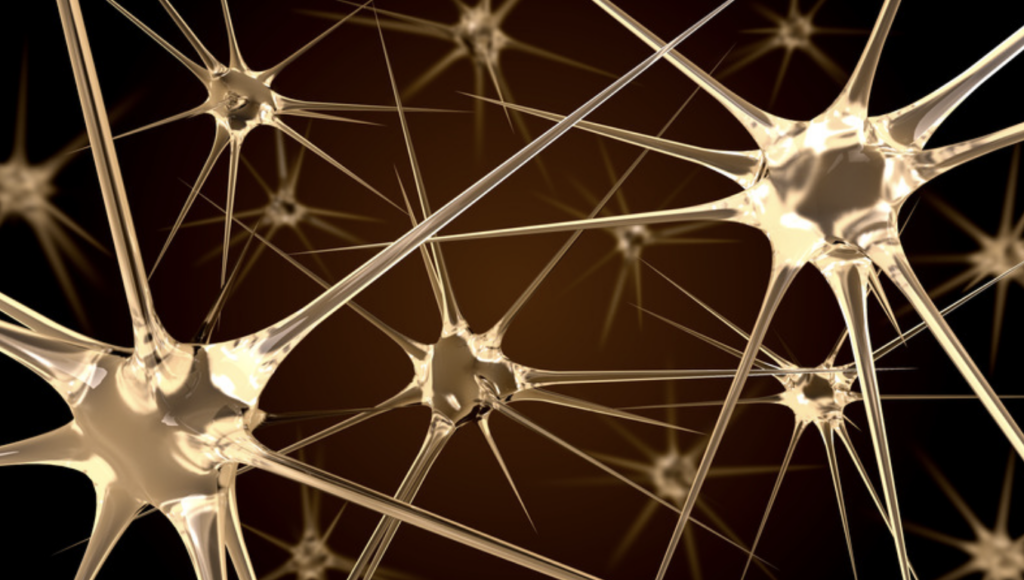
NeuLife Rehabilitation is a premier TBI rehab center with specialized rehabilitation programs for brain injuries.
Our programs for neuro-rehab promote the highest level of functional independence and successful community reintegration for TBI survivors. We treat a wide range of diagnoses and injuries at our brain injury facility. Importantly, we support and involve caregivers. We know they will be key to success once the patient leaves the facility.
If you have any more questions concerning post-acute brain injury rehabilitation or any other issue regarding brain injury, call us at 800 626 3876 to make an appointment today. You can also make a referral or schedule a tour to visit our best brain injury facility.
The material contained on this site is for informational purposes only and DOES NOT CONSTITUTE THE PROVIDING OF MEDICAL ADVICE, and is not intended to be a substitute for independent professional medical judgment, advice, diagnosis, or treatment. Always seek the advice of your physician or other qualified healthcare providers with any questions or concerns you may have regarding your health.
The thought of a loved one going to inpatient neurorehabilitation may cause uncertainty. You may have several questions:
Understanding some of these processes may help to put your mind at ease. Armed with knowledge regarding traumatic brain injury rehabilitation expectations, you will feel more confident as you begin your recovery.
Inpatient neurorehabilitation (also known as residential rehabilitation) involves the medical treatment of patients on-site to incorporate a holistic and structured program. Inpatient neuro-rehab improves function, reduces symptoms, and improves patients' overall well-being who have suffered a brain injury.
Patients often transition to inpatient neurorehabilitation after a hospital stay. It is the bridge between hospital and home.
Common reasons patients need residential rehabilitation include:
The goal is to restore some or all of the patient's physical, sensory, and mental capabilities. It is important to note it is an environment that is safe and strives to provide the least amount of restriction possible while still pushing patients to improve.

The length of stay can vary due to several factors and can be unpredictable. That said, many patients stay for two to three weeks, participating in an individualized program. Patients will participate in therapy for a few hours daily, most days of the week.
Factors that influence length of stay include:
Patients can expect a longer stay if they have additional barriers to address.
You will work with a team of medical professionals that includes doctors, nurses, physical therapists, occupational therapists, speech and language pathologists, and other staff. Together they will work with the patient to address limitations. A combination of education, medication, therapies, skills, and rest all are involved in a full neurorehabilitation program.
A thorough evaluation and assessment are completed during the first week to identify patient needs. Next, the patient will participate in therapeutic activities that are at the core of rehabilitation. Finally, a discharge and transition plan is developed, focusing on family education and counseling so the patient will have a successful transition home.
NeuLife Rehabilitation Center is known as one of the best and largest brain injury rehabilitation centers in Florida and throughout the southeast. Our clinicians treat a wide range of diagnoses and injuries with the ultimate goal of functional independence.
We help our patients ‘get their life back’. If you would like more information about our services, do not hesitate to contact us today. Make a referral or give us a call at 800.626.3876.
The material contained on this site is for informational purposes only and DOES NOT CONSTITUTE THE PROVIDING OF MEDICAL ADVICE, and is not intended to be a substitute for independent professional medical judgment, advice, diagnosis, or treatment. Always seek the advice of your physician or other qualified healthcare providers with any questions or concerns you may have regarding your health.
The period after a brain injury can be a time of great uncertainty. Memory, attention, social skills, and communication can all be affected. Patients and family members are often desperate to get back to the pre-injury status quo and return to as normal of a life as possible.
But communication difficulties following brain injury can provide an obstacle. Fortunately, our traumatic brain injury center in Florida can help. In this blog post, we aim to tell you more about brain injury communication difficulties as well as how, specifically, NeuLife Rehab can help.
There can be several distressing factors after brain injury that may contribute to communication difficulties. These include:
When practitioners consider treatment for communication difficulties, they look at all symptoms contributing to the obstacle. Reliable post-acute rehabilitation facilities are familiar with holistic approaches that treat all contributing factors.
Communication difficulties may or may not be evident following brain injury. Every person and every injury is unique, as is how it impacts communication.
Some patients can have speech that is difficult to understand, or they can have expression difficulties. With expression difficulties, patients find it challenging to find the correct word they want to say. It can be incredibly frustrating for both the patients and sometimes those with whom they interact.
Other difficulties after brain injury impacting communication include being able to attend to conversations. Patients also can have trouble processing information, organizing thoughts, and can have impulsivity with language.
It is not uncommon for patients with a brain injury to have difficulty following appropriate social and communication rules. Brain injury patients may disrupt, dominate communication, change the topic, or say something inappropriate. These unusual patterns can be both embarrassing and uncomfortable.
Our brain injury residential facility employs highly-qualified speech and language pathologists to address communication difficulties with patients.
After a brain injury, some communication concerns resolve naturally as the brain heals. The speech rehab team builds on this progress to facilitate communication and conversational interactions.
Our team works to improve communication skills by teaching patients new strategies to compensate for the difficulties they may be having. They also teach patients the skill of self-monitoring so that they can manage speech and behavior during conversations.
When speech is severely impacted, there are also technological tools to assist with communication difficulties. Research continues to progress in the technology area and look at innovations that may improve speech, language, and cognitive abilities in those who have suffered a brain injury.

Neu Life Rehabilitation Center is known for being the best and largest brain injury rehabilitation center in Florida. Our team treats a wide range of diagnoses and injuries at our rehabilitation center.
Hope is restored daily because of our treatment services. We want to be with you as you rehabilitate to the life you are meant to have! If you would like more information about our services, do not hesitate to contact us today. Make a referral or give us a call at 800.626.3876
References
Powell River Brain Injury Society (2020). Communication problems. Retrieved from https://braininjurysociety.com/information/acquired-brain-injury/communication-problems/
The material contained on this site is for informational purposes only and DOES NOT CONSTITUTE THE PROVIDING OF MEDICAL ADVICE, and is not intended to be a substitute for independent professional medical judgment, advice, diagnosis, or treatment. Always seek the advice of your physician or other qualified healthcare providers with any questions or concerns you may have regarding your health.

We know that choosing the next step in your recovery from a catastrophic illness or injury is complex. Together, we can help you take the next step.
Contact us with any questions today.